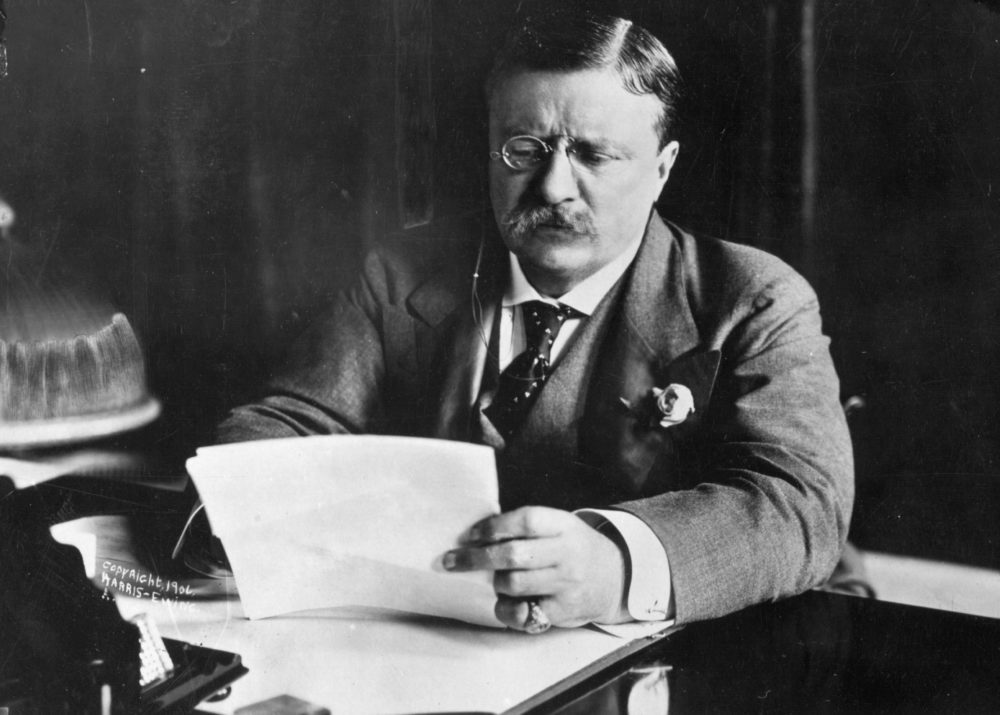
The first modern American president, Theodore Roosevelt, left an indelible mark during his two terms between 1901 and 1909. A dynamic force from the moment of his inauguration, Roosevelt expanded the reach of the U.S. government into such areas as industry, labor, the environment, consumer rights, and foreign affairs. While his tenure was not without controversy, Roosevelt was a decidedly popular figure amongst his constituents, much beloved for his robust enthusiasm for life. In addition to his government positions, Roosevelt was also a prolific author, rancher, soldier, adventurer, historian, Harvard grad, and winner of the Nobel Prize for Peace in 1906.
Predictably enough, from the day of his arrival in 1876, Roosevelt failed to fit into the Harvard mold. While he excelled at his studies, young Roosevelt's clothes were considered too flashy and he could also be challenging towards classmates and teachers alike. Once, Roosevelt asked so many questions during a natural history lecture that the professor exclaimed, "Now look here, Roosevelt, let me talk, I'm running this course!"
On the other hand, it was at Harvard that Roosevelt found his path in life. He boxed, rowed, was the editor of The Harvard Advocate, and joined several campus groups including the prestigious Porcellian Club. More importantly, the Cambridge campus is where he developed his lifelong political and historical interests. Though politics was considered "beneath" wealthy young gentlemen of the day, Roosevelt saw the political arena as an opportunity to change laws for the betterment of society. In 1880 he graduated from Harvard with an A.B. magna cum laude.
In 1943, Roosevelt finally returned to his alma mater, where his legacy lives on in the Widener and Houghton libraries. This is where Harvard maintains the Theodore Roosevelt Collection, a vast collection of Roosevelt's papers, manuscripts, ancillary archival resources, printed works, photographs, and ephemera relating to Roosevelt's personal and professional life.
In 2019 Harvard announced that it had been given full stewardship of all material previously owned by the Theodore Roosevelt Association, including unpublished letters, a childhood travel diary, and a daguerreotype of his grandfather. The entirety of the collection, which includes more than 12,000 books and 10,000 photographs, ensures Theodore Roosevelt scholarship for future generations of America’s brightest.
